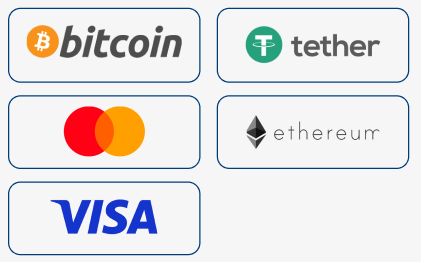If you’re new to the world of forex trading, you may have heard the term “forex spread” being thrown around. But what exactly is the forex spread, and why is it important for traders to understand?
In this article, we’ll dive into the basics of the forex spread, including what it is, how it’s calculated, and why it matters for your trading success.
Understanding the Forex Spread
What is the Forex Spread?
The forex spread is the difference between the bid price and the ask price of a currency pair. In simpler terms, it is the cost of trading a currency pair.
For example, if the bid price for EUR/USD is 1.2000 and the ask price is 1.2002, the spread would be 2 pips. This means that in order to enter a trade, you would need the market to move at least 2 pips in your favor before you break even.
How is the Forex Spread Calculated?
The forex spread is typically calculated in pips, which is the smallest unit of measurement for a currency pair. One pip is equal to 0.0001 for most currency pairs, except for pairs involving the Japanese yen, where one pip is equal to 0.01.
To calculate the spread, you simply subtract the bid price from the ask price. For example, if the bid price for GBP/USD is 1.4000 and the ask price is 1.4002, the spread would be 2 pips.
Why is the Forex Spread Important?
The forex spread is important for several reasons:
- It is the main cost of trading forex. Every time you enter a trade, you will have to pay the spread, which is essentially the commission for your broker.
- It affects your profitability. The wider the spread, the more the market needs to move in your favor for you to make a profit. This means that a wider spread can make it more difficult to be profitable in your trades.
- It can vary between brokers. Different brokers may offer different spreads for the same currency pair, which can impact your trading results. This is why it’s important to choose a broker with competitive spreads.
Types of Forex Spreads
Fixed Spreads
A fixed spread is a set amount that remains the same regardless of market conditions. This means that the spread will not change, even during times of high volatility or low liquidity.
Fixed spreads are typically offered by market makers, who act as the counterparty to your trades. They make money by charging a fixed spread and taking the opposite side of your trades.
Variable Spreads
A variable spread, also known as a floating spread, can change depending on market conditions. This means that the spread may widen or narrow based on factors such as volatility, liquidity, and news events.
Variable spreads are typically offered by ECN (Electronic Communication Network) brokers, who connect traders directly to the interbank market. They make money by charging a small commission on each trade, in addition to the variable spread.
Zero Spreads
A zero spread, also known as a “tight spread”, is when the spread is set at 0 pips. This means that there is no difference between the bid and ask price, and traders can enter and exit trades without paying any spread.
Zero spreads are typically offered by ECN brokers, who make money solely through commissions. They may offer zero spreads for certain currency pairs or during specific trading sessions.
Factors That Affect the Forex Spread
The forex spread can vary depending on several factors, including:
- Market volatility: During times of high volatility, the spread may widen as traders demand higher prices for their trades.
- Liquidity: The spread may widen during times of low liquidity, as there are fewer buyers and sellers in the market.
- News events: Major news events, such as economic data releases or central bank announcements, can cause the spread to widen as traders react to the news.
- Time of day: The spread may be wider during certain trading sessions, such as the Asian session, when there is less trading activity.
How to Choose a Forex Broker with Competitive Spreads
When choosing a forex broker, it’s important to consider the spreads they offer. Here are some tips for finding a broker with competitive spreads:
- Compare spreads between different brokers: Look at the spreads offered by different brokers for the currency pairs you are interested in trading. This will give you an idea of the average spread for each pair.
- Consider the type of spreads offered: Decide whether you prefer fixed or variable spreads, and choose a broker that offers the type of spread you are comfortable with.
- Look for a broker with low spreads: A lower spread means that you will pay less in trading costs, which can improve your profitability.
- Check for hidden fees: Some brokers may offer low spreads, but charge hidden fees such as commissions or markups on the spread. Make sure to read the fine print and understand all the fees involved before choosing a broker.
Real-World Examples of Forex Spreads
Let’s take a look at some real-world examples of forex spreads from popular currency pairs:
- EUR/USD: 1.2000/1.2002 (2 pips)
- GBP/USD: 1.4000/1.4002 (2 pips)
- USD/JPY: 109.50/109.52 (2 pips)
- AUD/USD: 0.7700/0.7702 (2 pips)
- EUR/GBP: 0.8600/0.8602 (2 pips)
- USD/CAD: 1.2500/1.2502 (2 pips)
- USD/CHF: 0.9000/0.9002 (2 pips)
- NZD/USD: 0.7200/0.7202 (2 pips)
Conclusion
In summary, the forex spread is the difference between the bid and ask price of a currency pair. It is an important factor to consider when trading forex, as it affects your trading costs and profitability.
There are different types of spreads, including fixed, variable, and zero spreads, and the spread can vary depending on market conditions. When choosing a forex broker, it’s important to consider the spreads they offer and look for a broker with competitive spreads and transparent fees.
By understanding the forex spread and how it can impact your trading, you can make more informed decisions and improve your chances of success in the forex market.
Remember: Consistent trading strategies, sound risk management, and a strong understanding of the market are key factors for success in forex trading.





